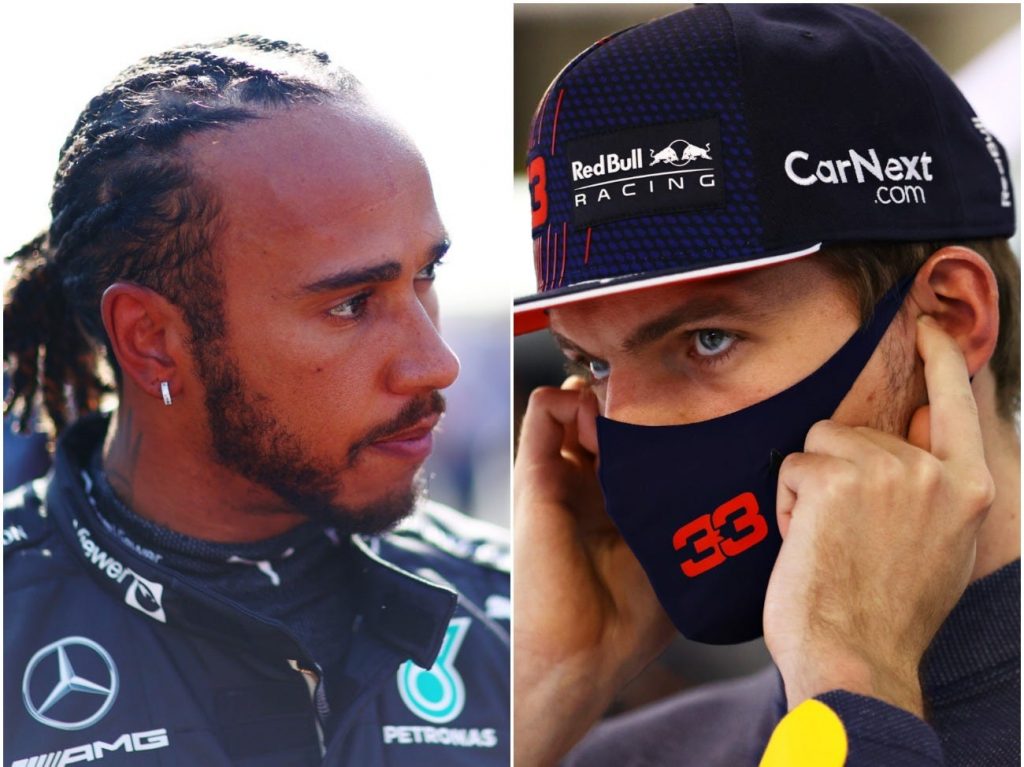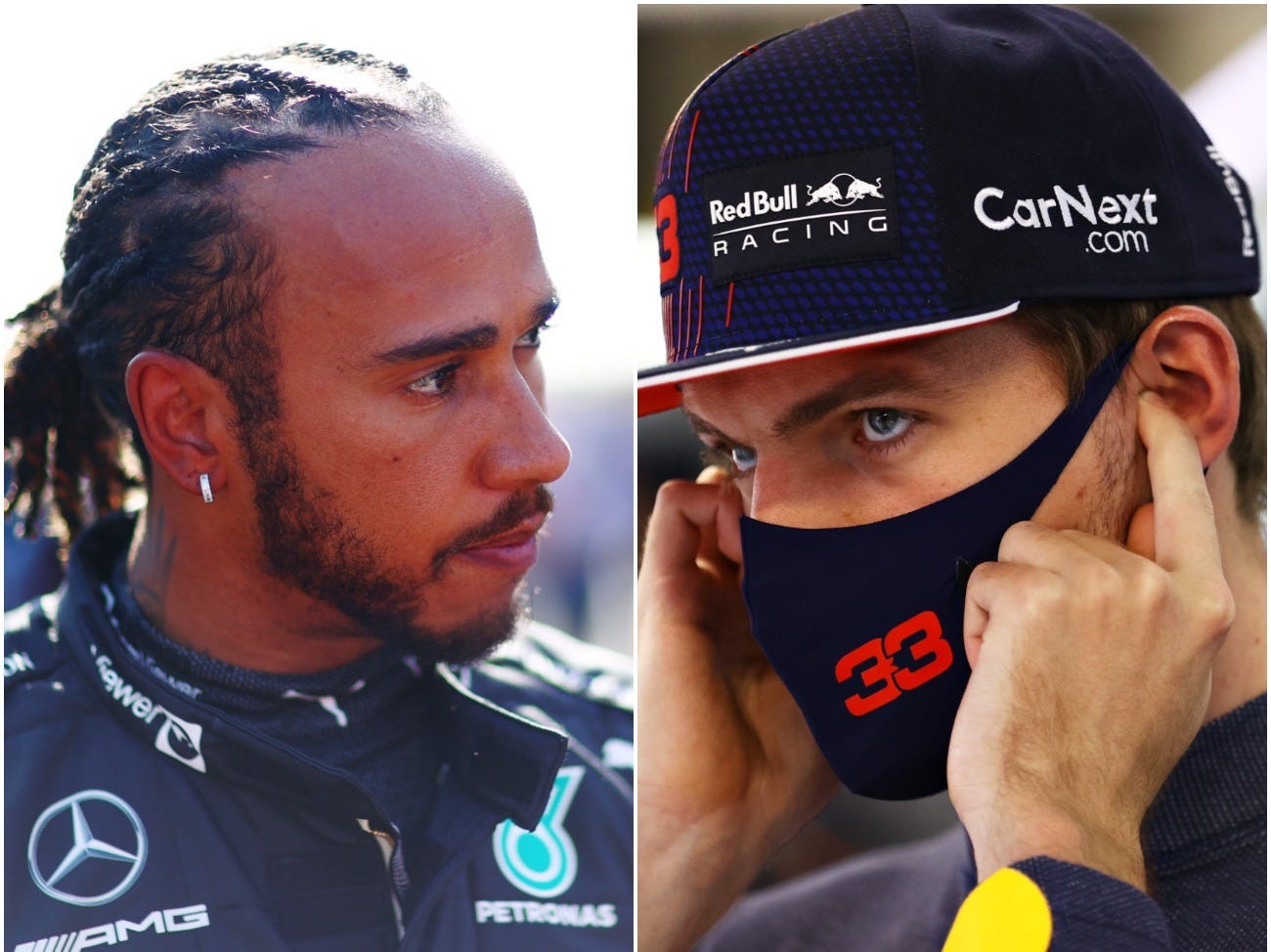
Dan Istitene – Formula 1/Formula 1 via Getty Images and Bryn Lennon/Getty Images
- Max Verstappen leads the F1 championship and could beat Lewis Hamilton by the end of the Qatar Grand Prix.
- Hamilton and his Mercedes team have dominated for seven years, but that era may be coming to an end.
- Several of the remaining races favor Red Bull's car, meaning Verstappen could pull away from his rival.
The most exciting Formula One season in years could soon be decided with the two championship contenders heading towards the crunch period of the season.
Red Bull's Max Verstappen, who is aiming to win his first world title, is 12 points clear of nearest rival and reigning world champion Lewis Hamilton.
If results go his way, Verstappen could become the first non-Mercedes driver to win the sport's biggest prize since Sebastian Vettel in 2013 by the end of the Qatar Grand Prix in under a month's time.
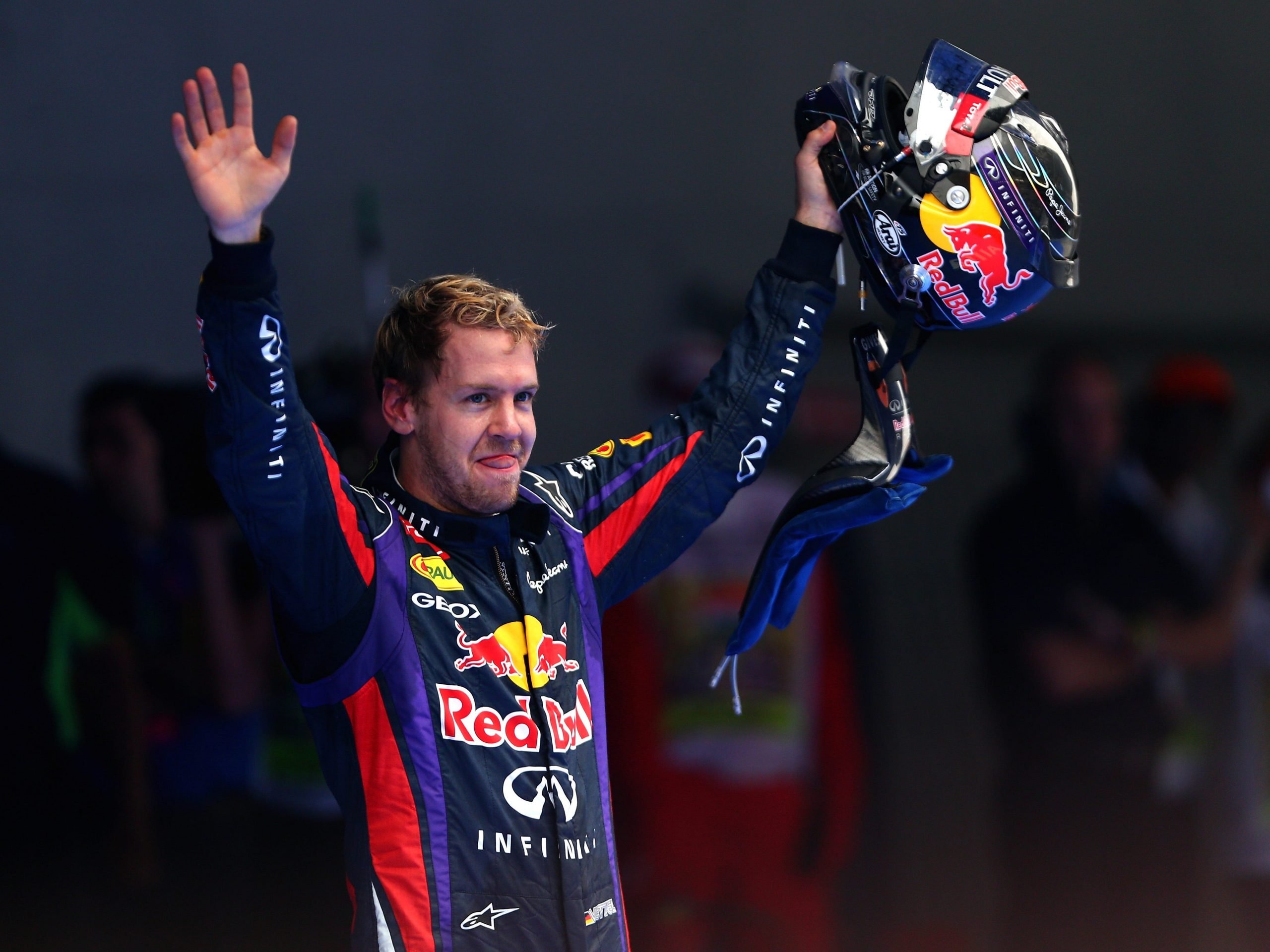
Paul Gilham/Getty Images
With five races left, there is a maximum of 133 points for both drivers to win, including three for the final sprint qualifying race to be held in Brazil.
Verstappen winning by Qatar is unlikely. To do so he'd have to win the next three races with Hamilton failing to score a single point, something that could only realistically happen if Hamilton were to suffer huge reliability issues.
While a Qatar coronation most likely won't happen, Verstappen does hold most of the cards right now.
Following the United States Grand Prix, Mercedes team principal Toto Wolff said the team needed to ensure it is "not swinging too much between mania and depression," but with two of the next three tracks set to favor Red Bull, there is every cause for concern.
A high altitude race in Mexico will favor the Red Bull
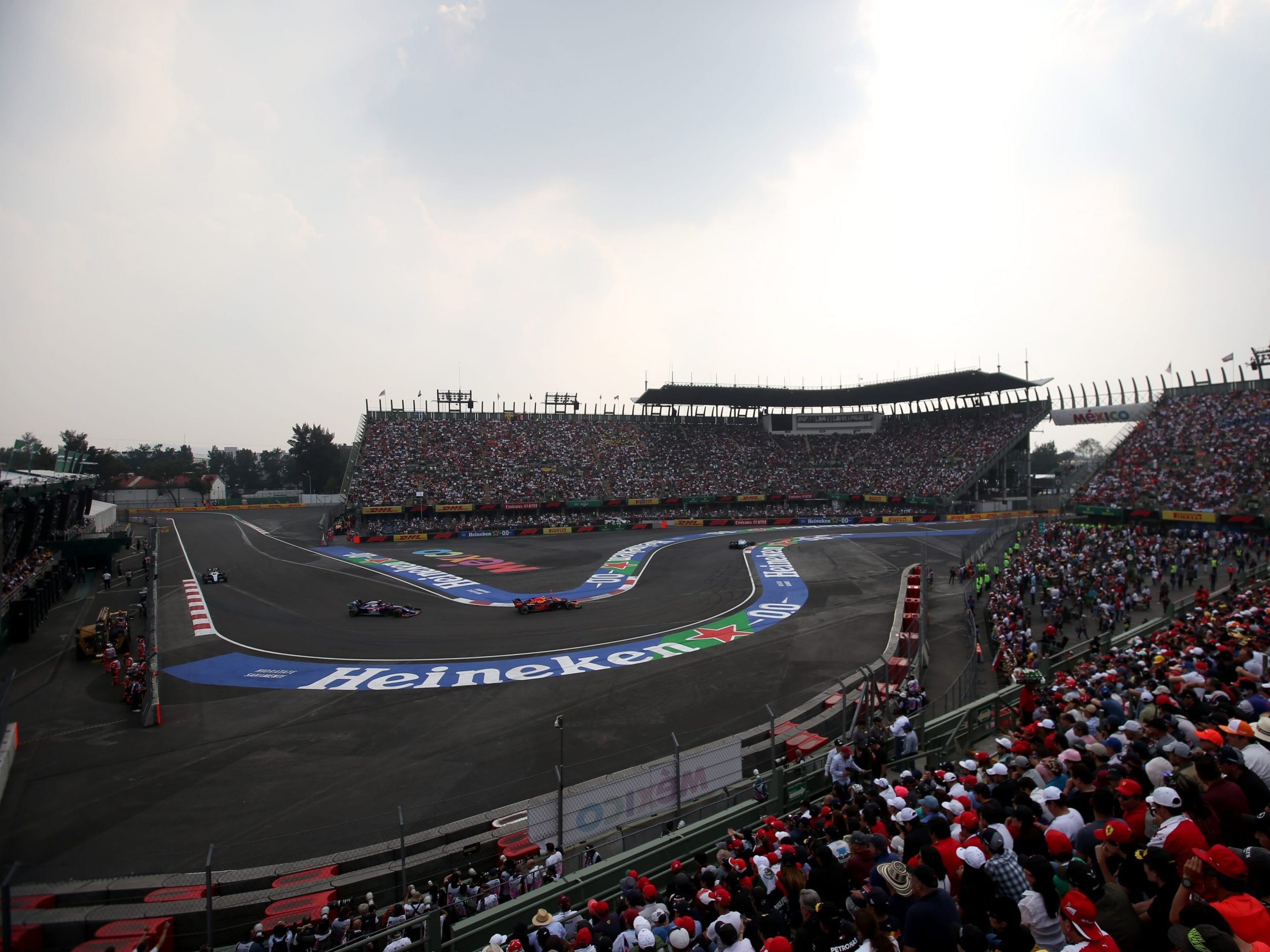
Charles Coates/Getty Images
Next on the busiest F1 schedule ever is the Mexico Grand Prix and it is a track that will bring encouragement to Red Bull.
The Austrian team has won two of the past three races at the Autódromo Hermanos Rodríguez, a tally that could easily have been three from three had Verstappen not been handed a three-place grid penalty in 2019.
This week, Mercedes driver Valterri Bottas said Mexico is a place where Red Bull always do well and one of the reasons for that is the high altitude of the circuit.
At 2,238 meters above sea level, the track is the highest of any race this year and that means thinner air for the cars to drive in.
As Edd Straw reports for The Race, that favors the smaller turbo of Red Bull's Honda engine.
"[The altitude] means less dense air, by not far off 25% than at sea level, which means you have to work the turbo harder to compensate by compressing the air.
"The Honda turbo is slightly smaller than the Mercedes turbo, making it easier to get up to the rev levels needed to maximize this," Straw writes.
In simple terms, a turbocharger, or turbo for short, pumps air into the car's engine which increases its power and efficiency.
Little to split the two teams at the Brazilian Grand Prix
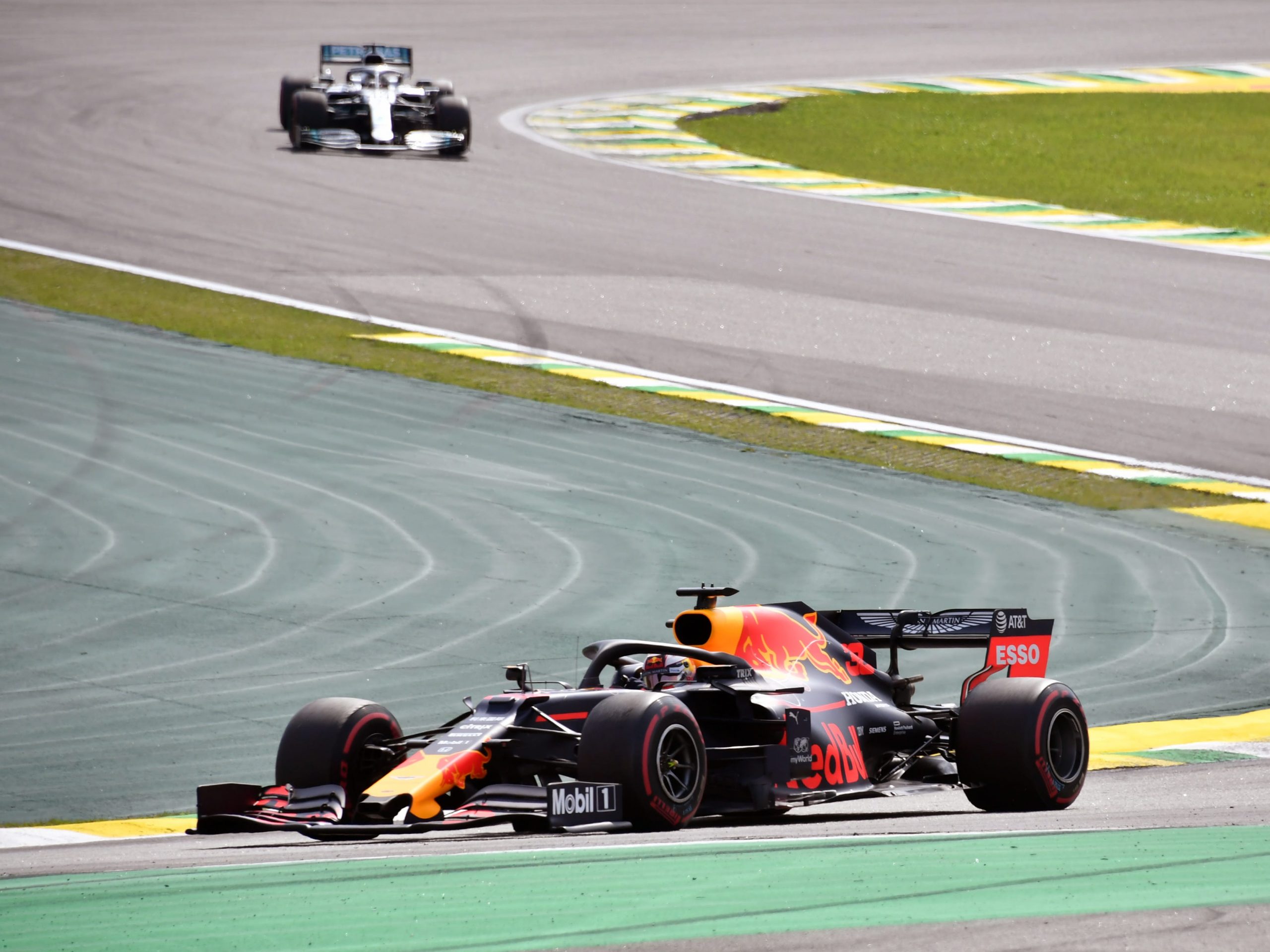
NELSON ALMEIDA/AFP via Getty Images
Of the next three races, the Brazilian Grand Prix is the hardest to pick a clear winner.
It is still a high altitude track at 800 meters above sea level, but not to the same level of the Mexican Grand Prix, meaning Red Bull's turbo will be less of a deciding factor.
The track generally favors cars with a mix of straight line speed and good downforce, but what is above the track may prove more impactful.
Interlagos, to the south of São Paulo, is known for its extreme and changeable weather.
The most recent example of the kind of carnage that the conditions can cause came in 2016.
As rain poured, the first eight laps of the race started behind the safety car and while Hamilton went on to win, Verstappen received huge praise for his daring drive.
The Dutchman drove aggressively to earn a podium finish and even rescued himself from a collision with the wall after aquaplaning across the track.
Verstappen will also take confidence knowing he is the most recent winner at the track, finishing 11 seconds clear of seventh-placed Hamilton in 2019.
A new race in Qatar is an unknown quantity, but may benefit Red Bull
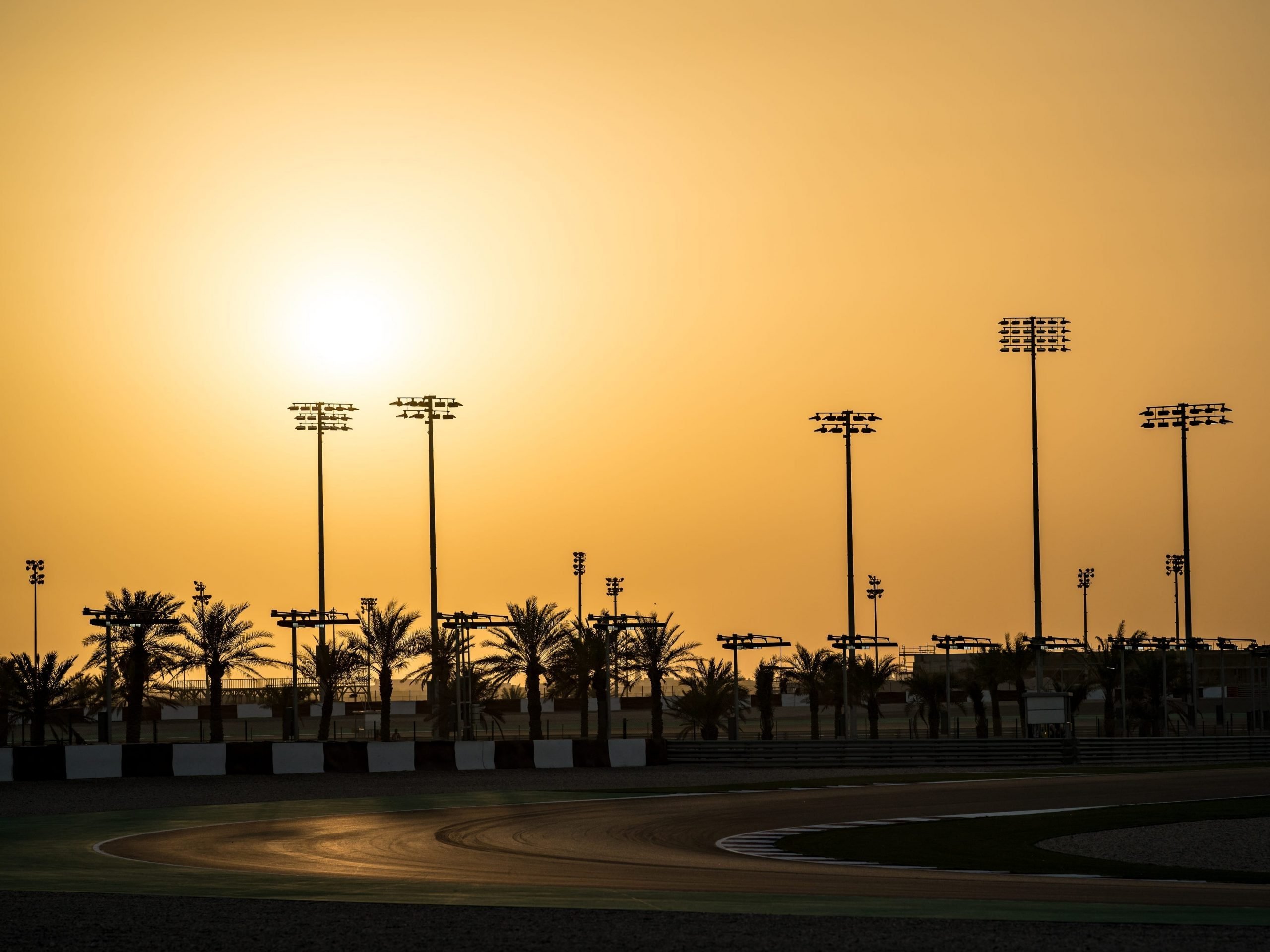
Steve Wobser/Getty Images
While the addition of any new circuit poses its own challenges - namely that no one has driven there before - the inaugural Qatar Grand Prix looks to be one that will favor Red Bull.
The Race's Edd Straw notes that the rake of Red Bull's car - effectively the difference in height between the front and the rear - is higher than that of Mercedes, something likely to aid Red Bull around the Losail International Circuit, which is made up of lots of long, medium-speed corners.
Should Verstappen pick up wins at all three of these tracks and Hamilton fail to score any points, then the Dutchman will have his first world title.
